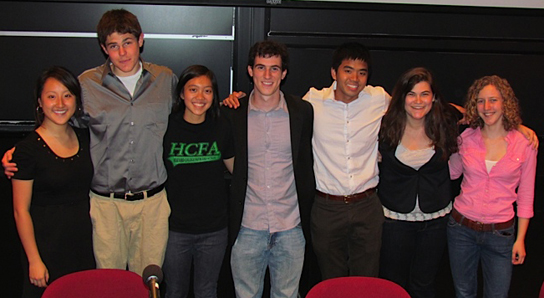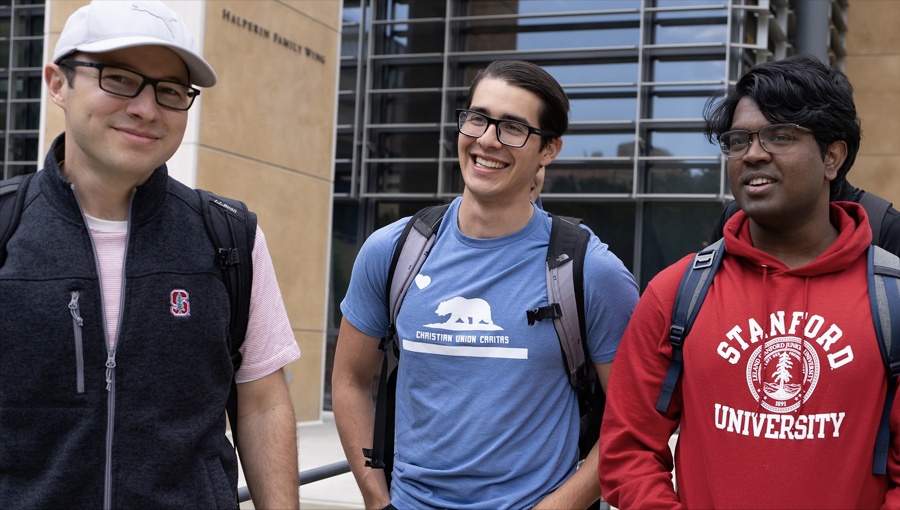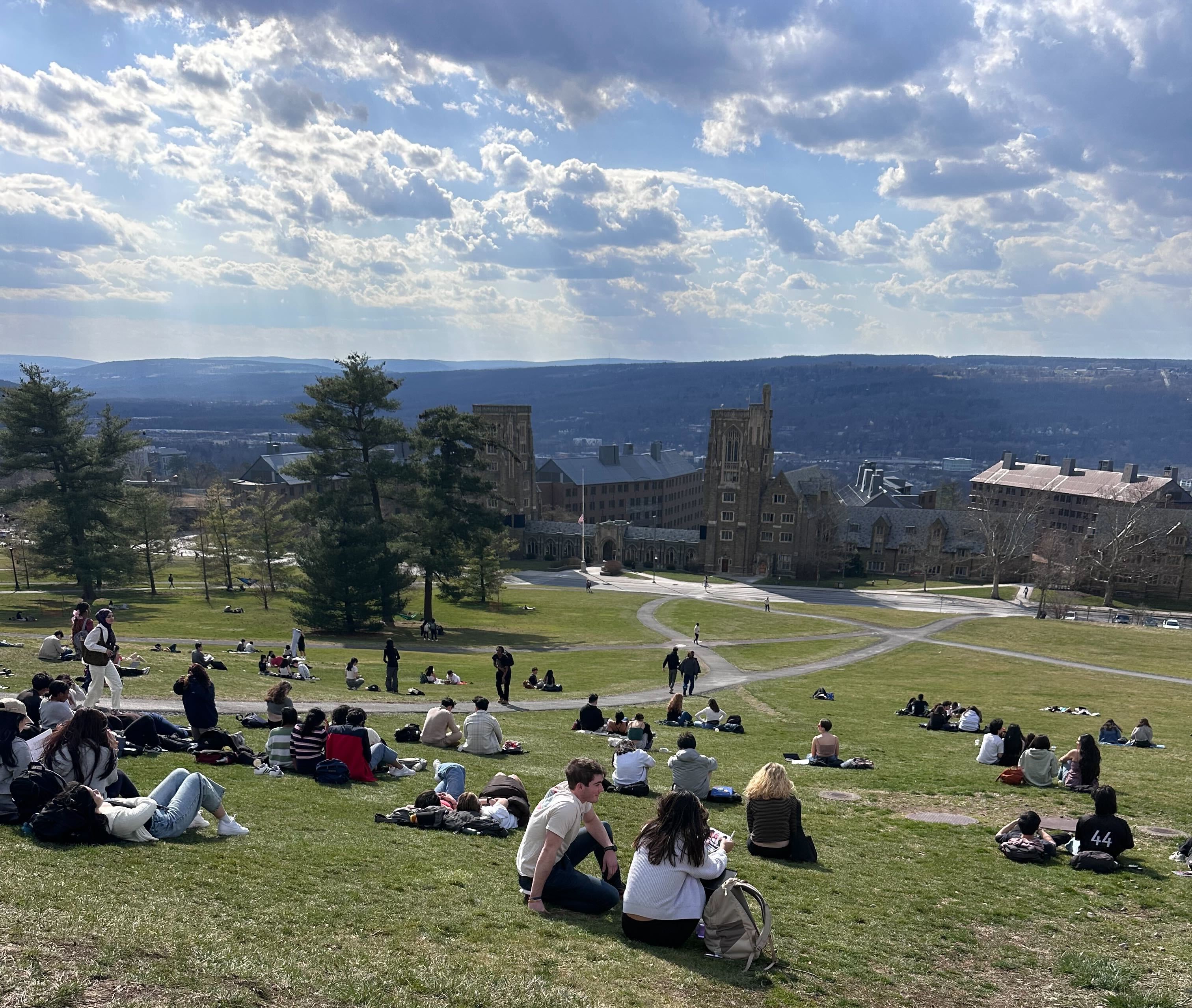Can There be Good without God? Nate Otey '15 and Corinne Tu '13 Present Case for Necessity of Creator
 "If we're going to have a discussion on ethics, let's be ethical in giving up our seats and moving forward so that others can sit," exhorted moderator Jordan Monge in Harvard's Science Center Auditorium C.
"If we're going to have a discussion on ethics, let's be ethical in giving up our seats and moving forward so that others can sit," exhorted moderator Jordan Monge in Harvard's Science Center Auditorium C. Typically used for large science lecture courses and having a seat capacity of 350, Harvard students of all faith backgrounds (and no faith backgrounds) crowded into the auditorium, leaving it completely filled—including the entirety of the floor space and standing room in the back.
It is estimated that 430 people were present at the fall semester debate hosted by Harvard College Faith and Action (HCFA) and Harvard Community Humanists, Atheists, and Agnostics (HCHAA). Harvard College Faith and Action is a leadership development ministry supported and resourced by Christian Union.
In the summer of 2011, the organizations formed a reading project where students read and discussed The God Delusion by Richard Dawkins and Atheist Delusions by David Bentley Hart through a googlegroup.
There's a widespread impression that Christians are not intellectually minded ... HCFA showed that they are willing to engage with people who disagree with them on the same academic playing field.
This fall, recognizing the importance of engaging with people who think differently and the campus as a whole, HCFA and HCHAA (formerly called the Harvard Secular Society) hosted a debate entitled "Good without God?" on September 2 in Harvard's Science Center.
"In approaching this, we wanted to be true to the purpose of a debate. That is, we didn't see this as a platform to preach," said HCFA President Alastair Su '14. "However, we are always interested in an opportunity to share the gospel. If there is any opportunity to present the gospel on a public platform, let's take it."
At the event, each organization had two representatives debate the Dostoevsky quote: "If there is no God, all is permitted."
The discussion began with a witty opening by Eliot Wilson, president of HCHAA, and was followed by a passionate introduction by Su.
Nate Otey '15 and Corinne Tu '13 represented HCFA in the debate, while HCHAA was represented by Sarah Coughlon '15 and Melanie Rucinski '15.
Tu, an astrophysics concentrator, and Otey, a philosophy concentrator, formed a harmonized duo, emphasizing not only philosophical and logical coherence, but also personal testimonies pointing to concrete examples of the necessity of God and His goodness in the world.
Tu and Otey espoused an argument based on the prerequisite of purpose to determine that which is "good," and the need for a creator to determine true purpose. Coughlon and Rucinski drew on psychology to answer a slightly different question, that of the necessity of God to live as moral and/or "good" beings.
They cited several works in human psychology, which asserted that humans are biologically wired to be moral beings.
Following the event, moderator Jordan Monge '12 stated, "There's a widespread impression that Christians are not intellectually minded and don't have good answers to tough questions. At the debate, HCFA showed that they are willing to engage with people who disagree with them on the same academic playing field."
A former atheist and a member of HCFA before graduating in the spring, Monge was able to hold the middle ground as an impartial moderator and facilitated the serious discussion with humorous, clarifying remarks.
Su values the rare cooperation that HCFA and HCHAA share and looks forward to fostering more fruitful dialogue on the Harvard campus.
Reflecting on the event, Tu emphasized God's provision in the midst of her fears. "For two weeks I tried to mold myself to be a philosopher and a debater. But God led me to realize that convincing people is not dependent on eloquent words and persuasive speech. Even so, God allowed for both persuasion and eloquence, which I see as added grace."












